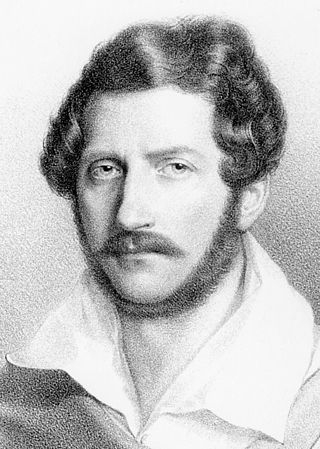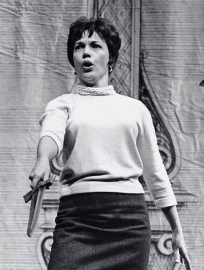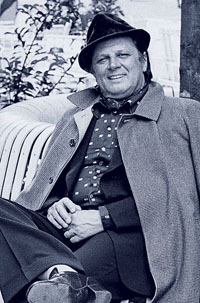Related Research Articles

Anna Bolena is a tragic opera in two acts composed by Gaetano Donizetti. Felice Romani wrote the Italian libretto after Ippolito Pindemonte's Enrico VIII ossia Anna Bolena and Alessandro Pepoli's Anna Bolena, both recounting the life of Anne Boleyn, the second wife of England's King Henry VIII.

María de Montserrat Bibiana Concepción Caballé i Folch or Folc, known simply as Montserrat Caballé, was a Spanish operatic soprano from Catalonia. Widely considered to be one of the best sopranos of the 20th century, she won a variety of musical awards thoroughout her six-decade career, including three Grammy Awards.
A coloratura soprano is a type of operatic soprano voice that specializes in music that is distinguished by agile runs, leaps and trills.
June Anderson is a Grammy Award-winning American coloratura soprano. She is known for bel canto performances of Rossini, Donizetti, and Vincenzo Bellini.

Il pirata is an opera in two acts by Vincenzo Bellini with an Italian libretto by Felice Romani which was based on a three-act mélodrame from 1826: Bertram, ou le Pirate by Charles Nodier and Isidore Justin Séverin Taylor). This play was itself based upon a French translation of the five-act verse tragedy Bertram, or The Castle of St. Aldobrand by Charles Maturin which appeared in London in 1816.

Gemma di Vergy is an 1834 tragedia lirica in two acts by Gaetano Donizetti from a libretto by Giovanni Emanuele Bidera. It is based on the tragedy Charles VII chez ses grands vassaux(Charles VII and His Chief Vassals) (1831) by Alexandre Dumas père, which was later to become the subject of the opera The Saracen by the Russian composer César Cui.

Nicola Rescigno was an Italian-American conductor, particularly associated with the Italian opera repertory. Opera News said that "Rescigno was a seminal figure in the history of opera in America, a maestro and mentor who shaped the destiny and reputation of two major U.S. companies — Lyric Opera of Chicago and Dallas Opera — as well as countless singing and conducting careers. Vigorous musical integrity, idiomatic style and unfailing support of his singers were the hallmarks of his performances throughout his distinguished career, which lasted more than fifty years."
Cecilia Gasdia is an Italian operatic soprano.
The Opera Orchestra of New York specializes in the performance of opera in concert form. It is particularly known for its work in presenting rarely performed repertory. Among the numerous American premieres it has presented are Puccini's Edgar, Boito's Nerone, and Smetana's Libuše.

Beverly Wolff was an American mezzo-soprano who had an active career in concerts and operas from the early 1950s to the early 1980s. She performed a broad repertoire which encompassed operatic and concert works in many languages and from a variety of musical periods. She was a champion of new works, notably premiering compositions by Leonard Bernstein, Gian Carlo Menotti, Douglas Moore, and Ned Rorem among other American composers. She also performed in a number of rarely heard baroque operas by George Frideric Handel with the New York City Opera (NYCO), the Handel Society of New York, and at the Kennedy Center Handel Festivals.

Gianni Raimondi was an Italian lyric tenor, particularly associated with the Italian repertory.
Nello Santi was an Italian conductor. He was associated with the Opernhaus Zürich for six decades, and was a regular conductor at the Metropolitan Opera in New York City. He was focused on Italian repertoire, especially operas by Verdi and Puccini, in a style following the tradition of Toscanini. He made sound and video recordings of Italian operas, including in 1971 Leoncavallo's Pagliacci with Plácido Domingo, Montserrat Caballé and Sherrill Milnes, in 1976 Montemezzi's L'amore dei tre re with Anna Moffo, Domingo and Pablo Elvira, in 2000 Verdi's I due Foscari, and in 2006 Donizetti's Don Pasquale in a Zürich production. Santi conducted from memory, and said "I love all of Verdi, but when he composed Rigoletto, Il trovatore and La traviata he was in a profound state of grace."

Joyce DiDonato is an American lyric-coloratura mezzo-soprano. She is notable for her interpretations of operas and concert works in the 19th-century romantic era in addition to works by Handel and Mozart.

Betty Allen was an American operatic mezzo-soprano who had an active international singing career during the 1950s through the 1970s. In the latter part of her career her voice acquired a contralto-like darkening, which can be heard on her recording of Sergei Prokofiev’s Alexander Nevsky with conductor Eugene Ormandy and the Philadelphia Orchestra. She was known for her collaborations with American composers, such as Leonard Bernstein, Aaron Copland, David Diamond, Ned Rorem, and Virgil Thomson among others.
Arnold U. Gamson was an American conductor who was particularly known for his work within the field of opera. He notably co-founded and served as the Music Director and principal conductor of the American Opera Society from 1950–1960. His work with the AOS was highly influential in sparking and perpetuating the post-World War II bel canto revival, particularly through a number of highly lauded productions of rarely heard works by Gioachino Rossini and Vincenzo Bellini. He was the husband of renowned dancer and choreographer Annabelle Gamson. Their daughter, Rosanna Gamson, is also a celebrated choreographer and their son, David Gamson is a composer of platinum-selling popular songs.
Allen Sven Oxenburg was an American opera director. He notably co-founded the American Opera Society (AOS) in 1950 with conductor Arnold Gamson, serving as the AOS's Artistic Director for two decades. He not only ran the administrative side of the AOS, but also was served as the company as stage director, program annotater, libretto translator and score editor. His work with the AOS was highly influential in sparking and perpetuating the post World War II bel canto revival, particularly through a number of highly lauded productions of rarely heard works by Gioachino Rossini, Gaetano Donizetti, and Vincenzo Bellini.

Angela Meade is an American operatic soprano.
Levy Sekgapane is a South-African operatic and Bel canto tenor whose repertoire includes roles in works by G. Rossini, G. Donizetti, W. A. Mozart, J. S. Bach. Sekgapane was named the 30 Under 30 Europe 2018: Arts & Culture by Forbes magazine.
Chester Watson was an American bass-baritone who had an active performance career in operas and concerts from the late 1940s into the 1970s. He was particularly active as a performer in opera on American television with the NBC Opera Theater. He also made appearances with several American opera companies, including the New York City Opera, the Lyric Opera of Chicago, and the Opera Society of Washington. He is best known for creating roles in the world premieres of several American operas, including the First Police Agent in Gian Carlo Menotti's The Consul (1950), Father Julien in Norman Dello Joio's The Trial at Rouen (1956), Palivec in Robert Kurka's The Good Soldier Schweik (1958), and Leonard Swett in Thomas Pasatieri's The Trial of Mary Lincoln (1972). He notably starred opposite Maria Callas as Goffredo in the American Opera Society's lauded 1959 production of Giuseppe Verdi's Il pirata; a performance which was recorded for EMI Classics. On the concert stage he appeared frequently with the National Symphony Orchestra during the 1950s, and also made guest appearances as a soloist with other American symphonies like the New York Philharmonic.
Laurel Hurley was an American soprano who had an active performance career in the mid 20th century. She performed a diverse repertoire from musical theatre, operetta and opera; encompassing roles in the lyric soprano and coloratura soprano repertoire. While most often heard in works from the standard opera canon by composers like Mozart, Puccini, and Verdi, she was not afraid to tackle unusual works; performing in the United States premieres of Thomas Arne's Comus, Gluck's Paride ed Elena, and Darius Milhaud's Médée. Her performances and recordings in operas such as Bellini's La sonnambula and I Capuleti e i Montecchi, and Rossini's La Cenerentola and The Barber of Seville contributed to the Bel canto revival movement of the 1950s.
References
- ↑ Emanuele Senici, The Cambridge companion to Rossini, on google books
- 1 2 3 4 Allan Kozinn (July 7, 1992). "Allen Sven Oxenburg, 64, Dead; American Opera Society Founder". The New York Times . Retrieved August 12, 2009.
- 1 2 "Music: Opera for Gourmets". Time . October 21, 1957. Archived from the original on November 1, 2011. Retrieved August 12, 2009.
- ↑ Allen Hughes (March 22, 1967). "Music: In Praise of Handel's 'Caesar'; Miss Caballe Stars in Role of Cleopatra". The New York Times . Retrieved July 16, 2009.
- ↑ "Obituaries: Composer Samuel L.M. Barlow" (PDF). Central Opera Service Bulletin, Vol. 25, No. 2. Winter–Spring 1984. Archived from the original (PDF) on 2011-07-26. Retrieved 2010-09-27.
- ↑ Performances database on beverlysillsonline.com. Retrieved 28 December 2013
- ↑ Met Opera Database of performances. Retrieved 28 December 2013